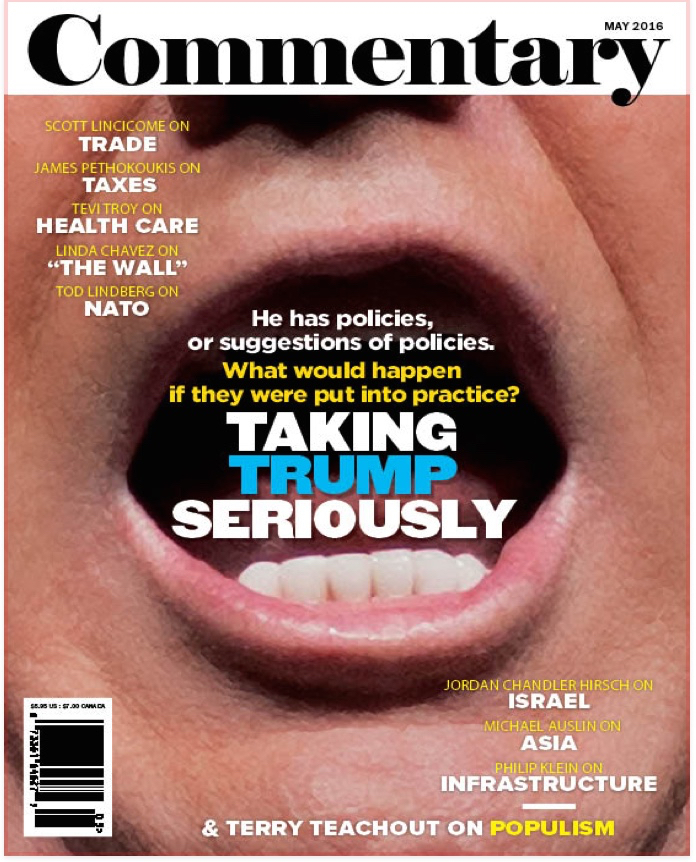 The latest issue of Commentary magazine takes Donald Trump at his word and examines the likely impact for American policies if the Republican presidential front-runner ends up in the White House.
The latest issue of Commentary magazine takes Donald Trump at his word and examines the likely impact for American policies if the Republican presidential front-runner ends up in the White House.
Along with taxes, immigration, health care, infrastructure, and foreign policy, the magazine tackles Trump’s tactics on trade, with help from Scott Lincicome.
Let us assume that Donald Trump means what he says and would, upon being sworn in as president 2017, immediately seek the implementation of his two grandest campaign promises—the unilateral imposition of high (35 to 45 percent) tariffs on Chinese and other imports due to “currency manipulation” or outsourcing, and the withdrawal of the United States from all U.S. trade agreements, including the North American Free Trade Agreement (NAFTA) and the World Trade Organization (WTO).
The first thing that needs to be said is that existing law clearly precludes such actions. No U.S. statute or regulation permits the president to impose unilateral tariffs on a broad range of products from a single country or group of countries. Indeed, the U.S. Constitution (Article I, Section 8) gives Congress the sole authority to tax imports (i.e., “to regulate Commerce with foreign Nations”). So Trump would need congressional approval to impose high tariffs on all Chinese or Mexican imports. …
… Nevertheless, assuming Trump did somehow convince Congress to impose these tariffs, or simply acted unilaterally in contravention of U.S. law, the results would cause immense pain for very little, if any, gain for the U.S. economy and workforce.
The most immediate damage would be done to consumers of imports in the United States. As basic economics and U.S. customs law dictate, they would be the ones who pay Trump’s tariffs—or, if those tariffs result in making it pointless to buy those imported goods, would be forced to pay higher prices for the same goods manufactured in the United States. It’s difficult to predict the precise magnitude of such taxes, but Representative Chris Collins of New York, one of Trump’s own spokesmen, recently suggested that the cost of food, clothing, and other necessities would rise by 10 to 15 percent. Considering the average American household spends about $11,000 on these items each year, such a tax would translate to an extra $1,100 to $1,650 per year that American families would have to spend under President Trump for the same things that they’re consuming right now—money they could have saved, invested, or spent on other important necessities (and the U.S. jobs that provide them). Almost 90 percent of free trade’s consumer benefits accrue to poor and middle-class consumers; Trump’s tariffs would have precisely the opposite effect. Thus, the tax imposed by tariffs is highly regressive.


